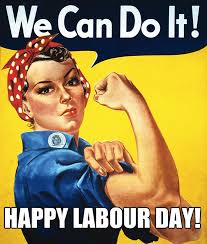
For Canada’s unions, Labour Day is a day to celebrate our work and our everyday victories we win to make life better for everyone. It is also a day to focus on the work ahead and the improvements yet to be won.
Union’s believe in the necessity of good pensions for everyone. For nearly a decade we advocated for stronger public pensions at the same time as we negotiated workplace pensions in unionized companies. This year, the federal government and provincial premiers have finally agreed that it is time to expand Canada’s largest defined benefit pension – the Canada Pension Plan (CPP).
While today’s seniors still need help to avoid poverty, young workers will benefit most from the expansion of CPP. Already faced with a hostile jobs market and record levels of debt, today’s young workers need ways to save for retirement. After a lifetime of work no one should have to struggle just to make ends meet.
With a change of attitude by our government on the need for stable pensions, it is worth noting that unionized workers at Kootenay Savings Credit Union and Canada Post in the West Kootenays are in the midst of negotiations to defend their pension plans. The workers in these organizations, among others, are determined to stop rollbacks that weaken both current and future workers’ abilities to retire in dignity. The West Kootenay Labour Council will assist those workers, however we can, to protect their deferred retirement wages; just like we supported the fight to improve pensions for all.
The West Kootenay Labour Council and our affiliate unions are also working with Selkirk College and Protein for People to host an event in October in conjunction with the International Day to Eradicate Poverty. Together, with the support of other organizations, we will be providing product for food banks in our communities and hosting a free salmon dinner. This event will bring seniors and students, struggling workers and unemployed and social justice activists together to raise awareness about the impact of poverty on many members of our society. When people join together to solve problems, it becomes a labour of love. The West Kootenay Labour Council is proud to initiate this event and will provide much more information in the weeks to come.
For Canada’s unions, values like fairness, equality and working together are what drive us to make a difference in our communities and across the country. Which is why we are also working hard to tackle issues like precarious work and the shrinking number of good jobs. We believe that the Federal and Provincial governments have a significant role to play by investing in our communities, investing in alternative energy and green jobs for the future, and by raising the minimum wage. When people are working and earning an income to meet their needs, they boost the local economy, and that benefits everyone.
Good jobs, safe workplaces, fairness and equality are the basic ingredients of a better future. These are the things that union leaders in our Labour Council believe in and work for every day. For us, it is truly a labour of love and it’s what motivates us in our negotiations, in our activities and in our celebrations on Labour Day and throughout the year.
Happy Labour Day to All.
Debbie Bird, President WKLC, on behalf of the Council and affiliates


